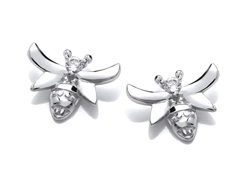
Black Friday – what’s it all about?
So, everyone has started Christmas shopping extra early this year, me included! What with a year of worry, lockdowns and very little fun – people want something to look forward to. Many people have put up their Christmas decorations already, (I’ve resisted the temptation so far..) there are Christmas songs on the radio and shopping has started in earnest. And now all the shopping focus is on Black Friday this week – well, lots of companies have been running offers and deals throughout November but officially Black Friday is this Friday – 27th November. This and Cyber Monday are the biggest shopping days of the year across the world. We are all busy looking for the best deals in this pre-Christmas shopping craze but what are the origins of this shopping phenomena, why is it called Black Friday and how did it start in the UK?
When was the term first used?
The first recorded use of the term “Black Friday” was actually associated with financial crisis and not holiday shopping. The crash of the U.S. gold market on September 24, 1869 was brought about by two Wall Street financiers, Jay Gould and Jim Fisk who worked together to buy up substantial amount of the nation’s gold, hoping to drive the price up and sell it for a huge profit. On that ‘Black Friday’ in September, the conspiracy was finally uncovered, causing the stock market to crash, with commodity prices plummeting 50%, bankrupting all the Wall Street barons.
So how did Black Friday become linked with Retail and shopping?
The true story behind Black Friday, is not quite as jolly as retailers might have you think. Back in the 1950s, police in the city of Philadelphia used the term to describe the chaos that ensued on the day after Thanksgiving, when large crowds of shoppers and tourists flooded into the city for the big Army-Navy football game held on that Saturday every year. Police officers were not able to take the day off and had to work extra-long shifts dealing with the crowds, traffic and shoplifting.
As the name spread throughout Philadelphia, some people objected to the negative connotations and unsuccessfully tried to change it to "Big Friday". The term Black Friday was used in a printed advert published in The American Philatelist magazine in 1966 and by the late 1980s, the term was well known across the U.S and retailers began to link to their post-Thanksgiving sales. Retailers had found a way to reinvent Black Friday and turn it into something that reflected positively on them and their customers.
As I said, retail sales were always important in November with many people in the U.S taking a day off sick after thanksgiving, not only to get a four- day holiday but also to make a start on their Christmas shopping.
As early as 1924, the department store Macy's launched its famous Eaton’s Thanksgiving Day Parade in New York to celebrate the success of the roaring 20’s and to boost shopping in the city the following day.
The shopping day grew in popularity throughout the 1930s, although was obviously affected by the Great Depression. In 1939, President Franklin D Roosevelt made the decision to move the date of Thanksgiving one week earlier than normal in order to boost sales and the US economy. Some named this move "Franksgiving".
And it worked.. with all the shopping activity on the Friday after Thanksgiving it became one of the most profitable days of the year. Shops used to record their accounting details by hand, noting profits in black and losses in red. It is believed that many shops were "in the red" throughout most of the year but they later "went into the black" the day after Thanksgiving.
When did Black Friday come to the UK?
Online retail giant Amazon introduced the concept to the UK in 2010, promoting a range of discounts and offers to customers.
In 2013, Asda (owned by American retailer Walmart) had its own Black Friday sale – which unfortunately led to chaos as people physically fought in store over TVs and other gadgets. Following this, Black Friday has grown significantly throughout the UK, with more and more retailers offering significant discounts and sales, both physically in store and of course, online.
What is Cyber Monday?
It hasn’t been around as long as Black Friday and it all started in 2005, with the goal to boost sales online for the first internet retailers. It was also to make online shopping more popular – how times have changed!! When it was first introduced, Black Friday was meant to be for physical stores on the high street and Cyber Monday for the new and developing online retail businesses.
The day marks the continuation of sales following Thanksgiving and Black Friday, with exclusive internet-only deals and discounts. This year, it is on the 30th November.
So now you know all about Black Friday and where it came from, but beware some of the offers can be too good to be true. Sometimes items are actually no cheaper that at other times of year, they are just made to look discounted and more appealing. Also beware of that sale mentality where you end up spending a fortune on things you really don’t want or need just because they are a good bargain. (who hasn’t got something in their cupboard that they bought in a sale but have never worn or used??) Men in particular who spend roughly 50 % more than women on Black Friday and Cyber Monday and the figures show that 52 % of people regret what they bought and spent. With men more likely to regret their shopping spree than women!
What’s our Black Friday Offer?
 We obviously wanted to be involved this crazy shopping weekend so are offering 15% off anything you buy from our website, delivered free of charge in the UK, in a beautiful complimentary branded gift box. So whether you are looking for cubic zirconia earrings as stocking fillers, jewellery gifts for your hard to buy for teenagers or a stunning handmade silver necklace for the one you love – we have silver jewellery designed for everyone which are even more affordable than usual.
We obviously wanted to be involved this crazy shopping weekend so are offering 15% off anything you buy from our website, delivered free of charge in the UK, in a beautiful complimentary branded gift box. So whether you are looking for cubic zirconia earrings as stocking fillers, jewellery gifts for your hard to buy for teenagers or a stunning handmade silver necklace for the one you love – we have silver jewellery designed for everyone which are even more affordable than usual.
Happy shopping everyone.






